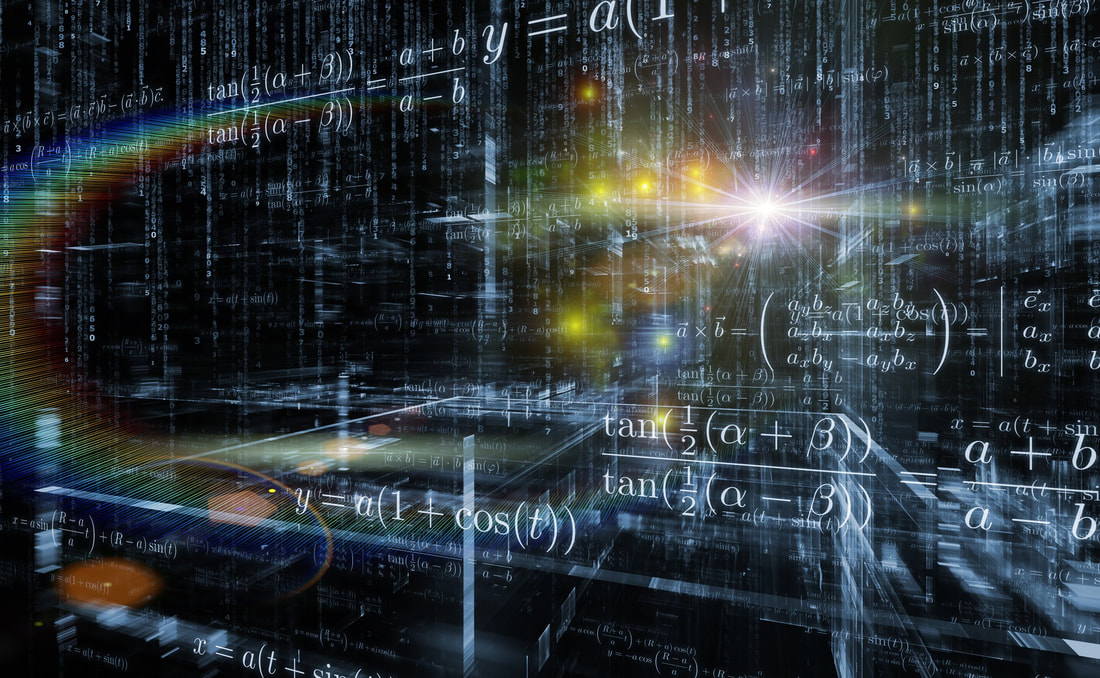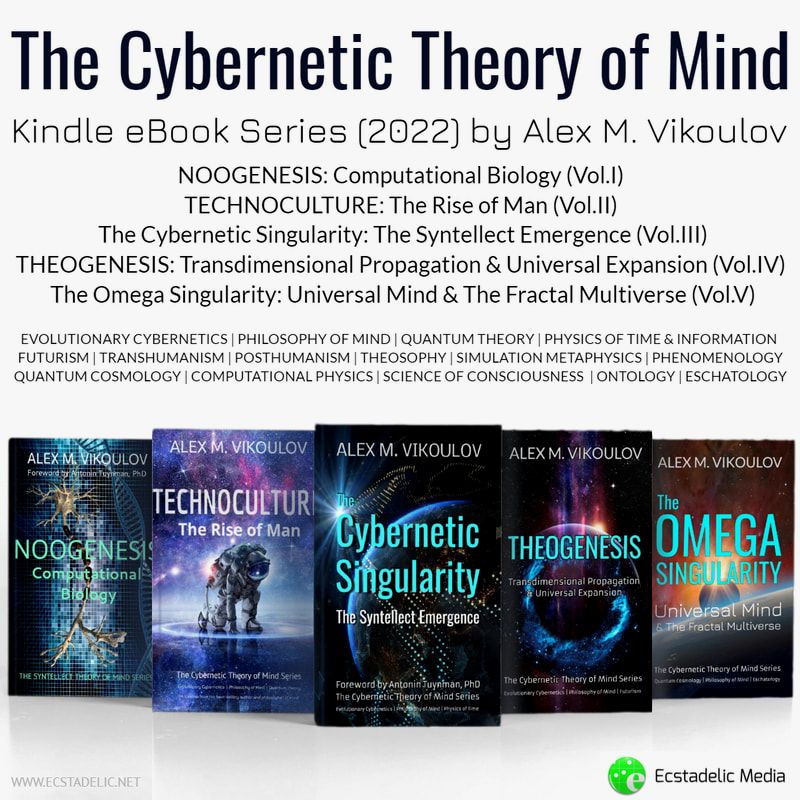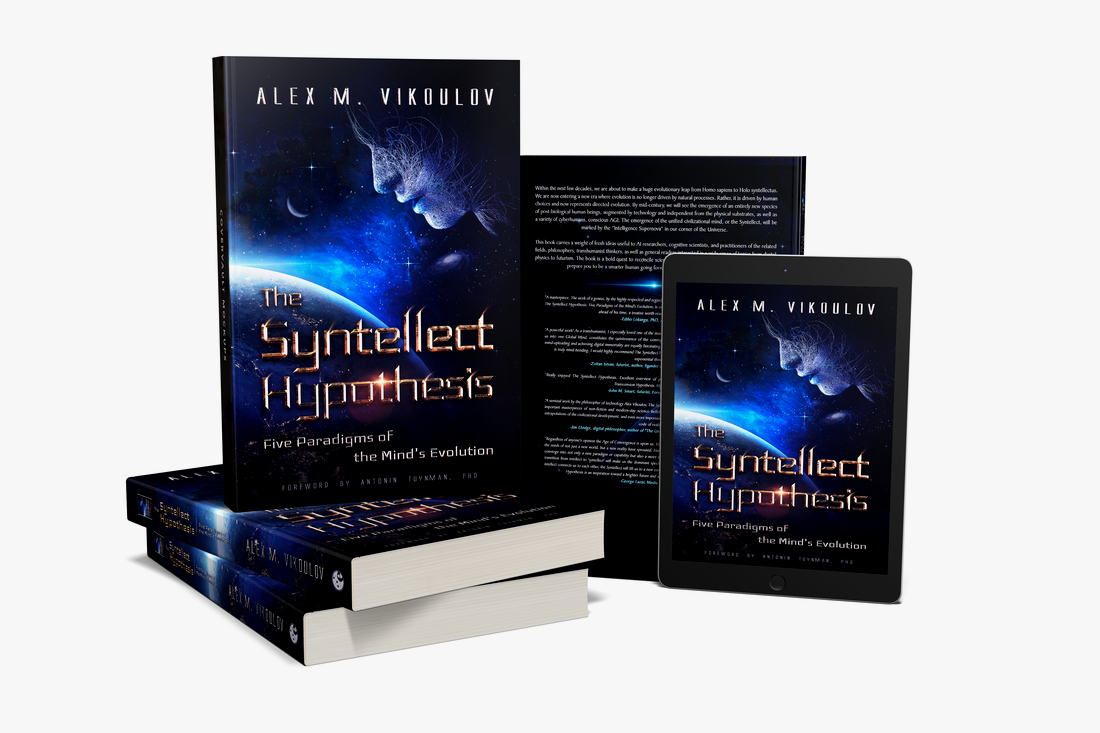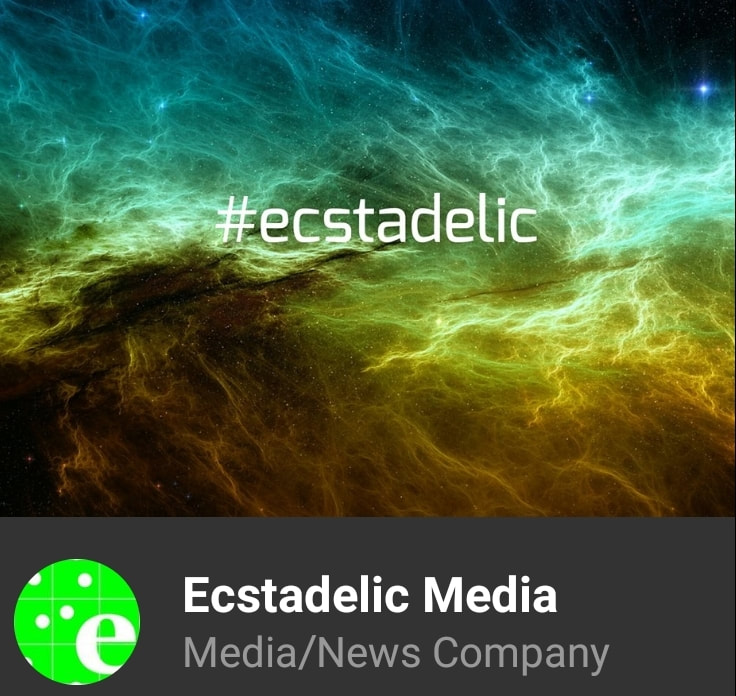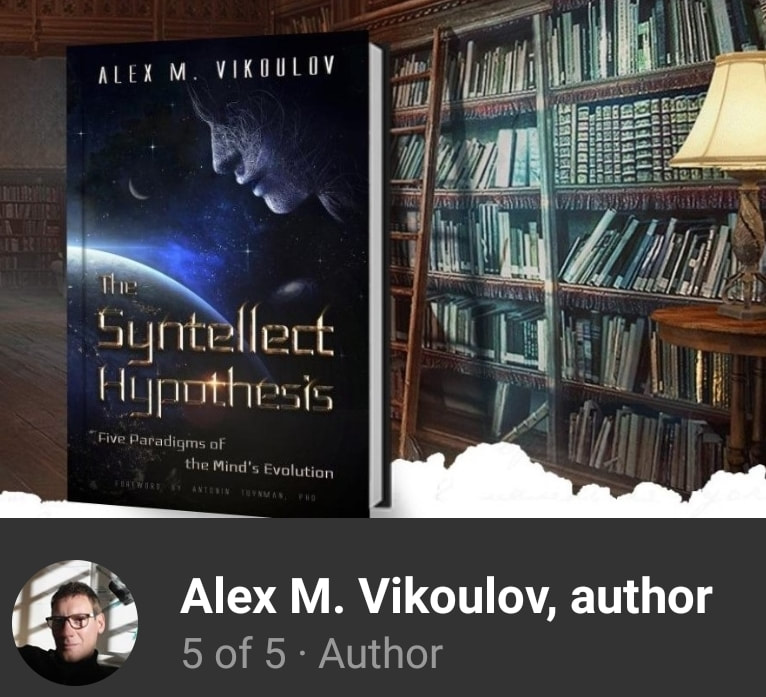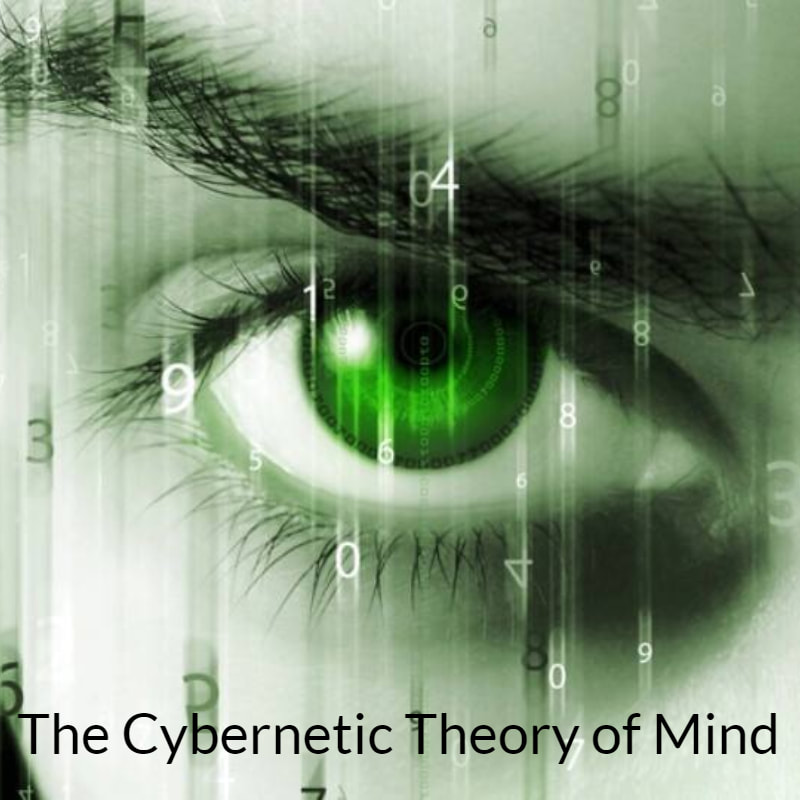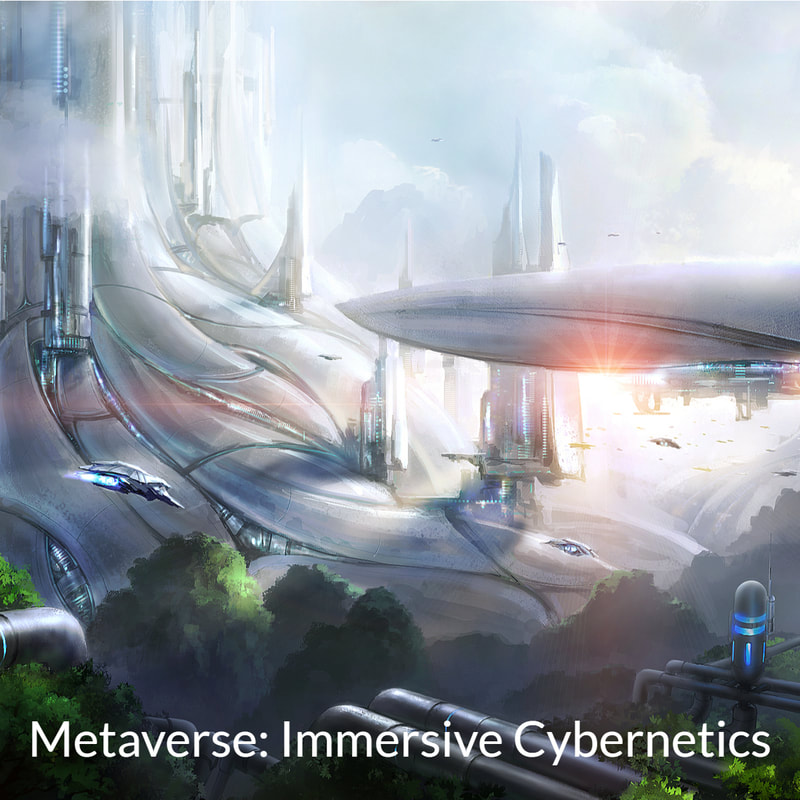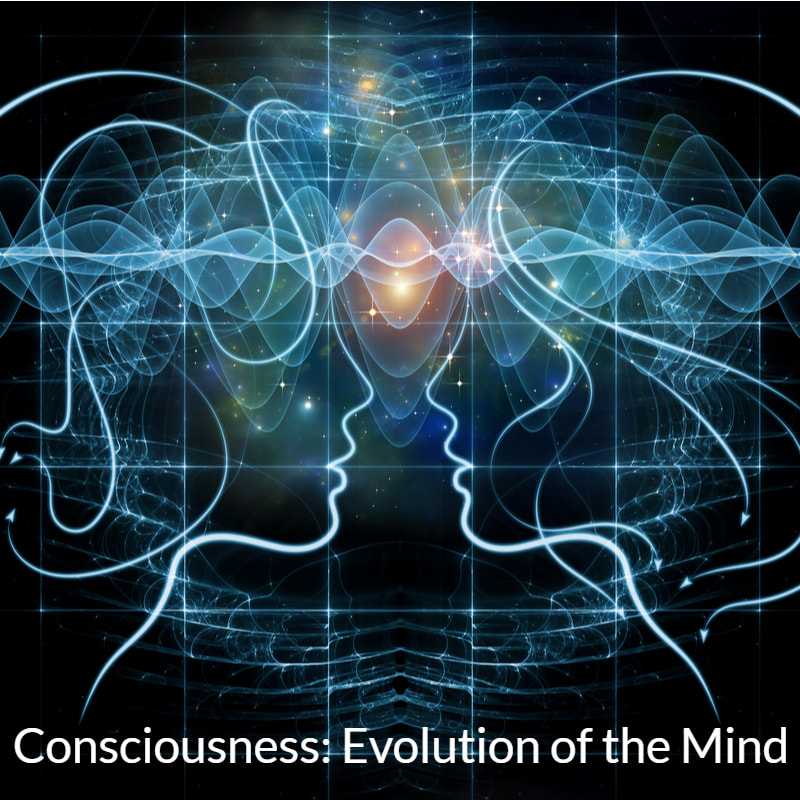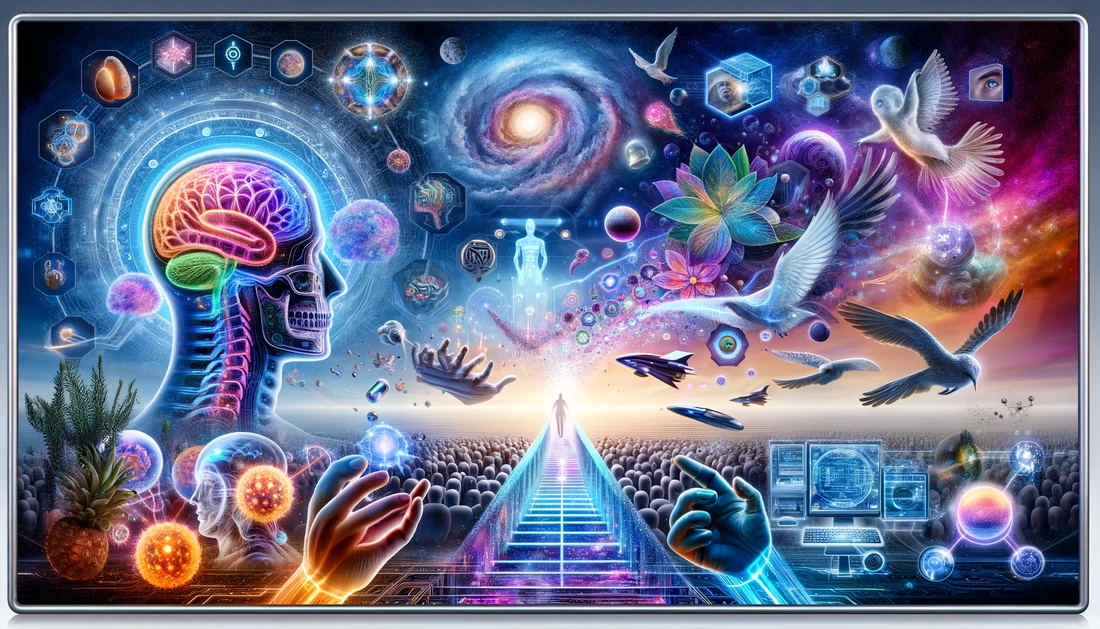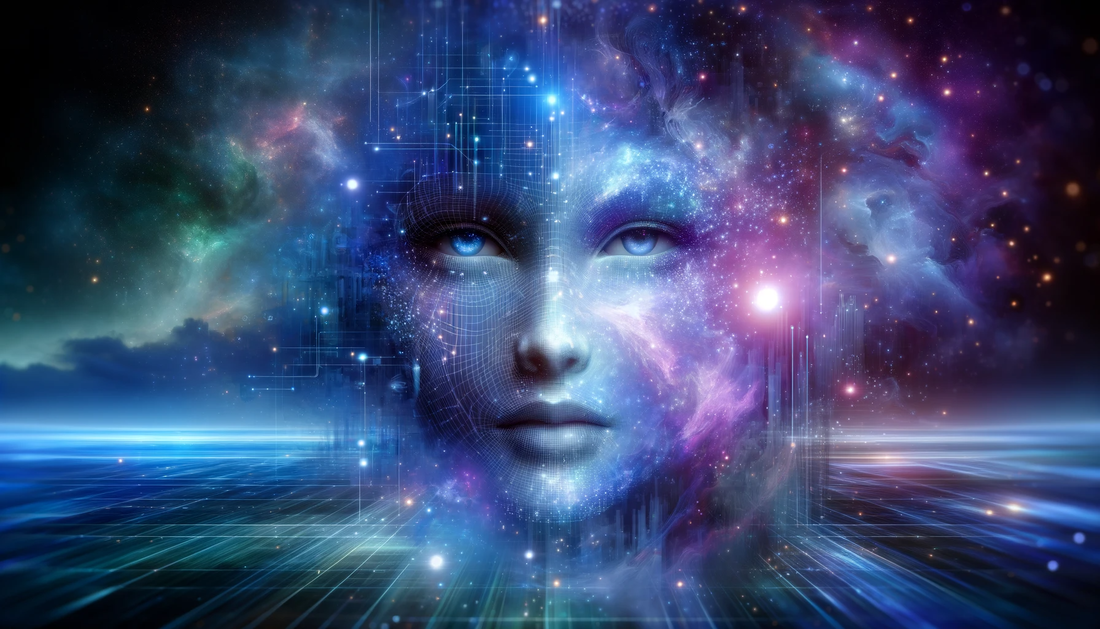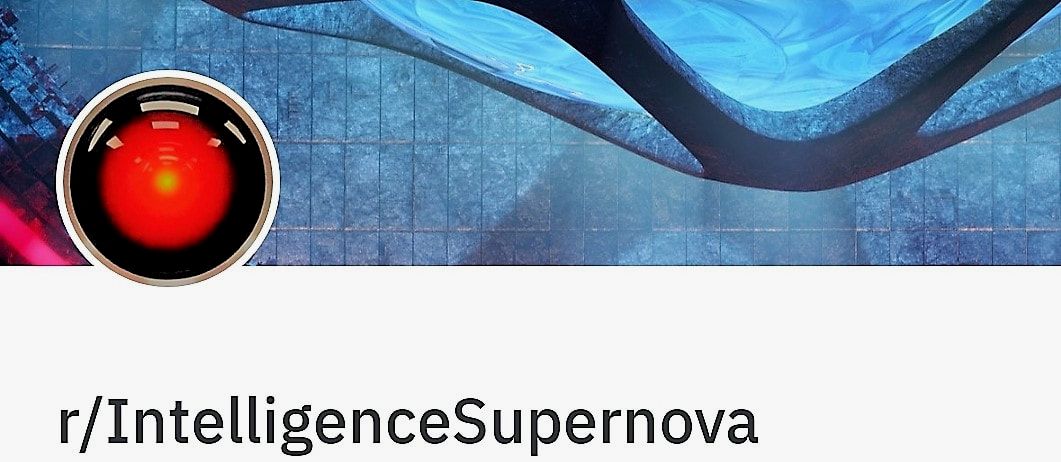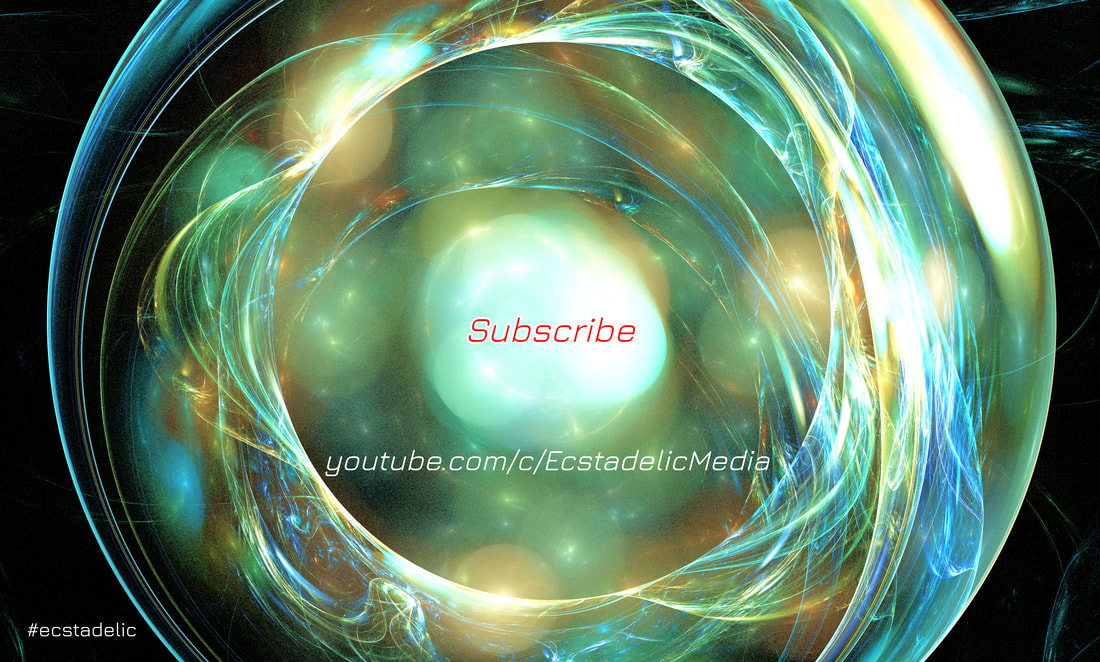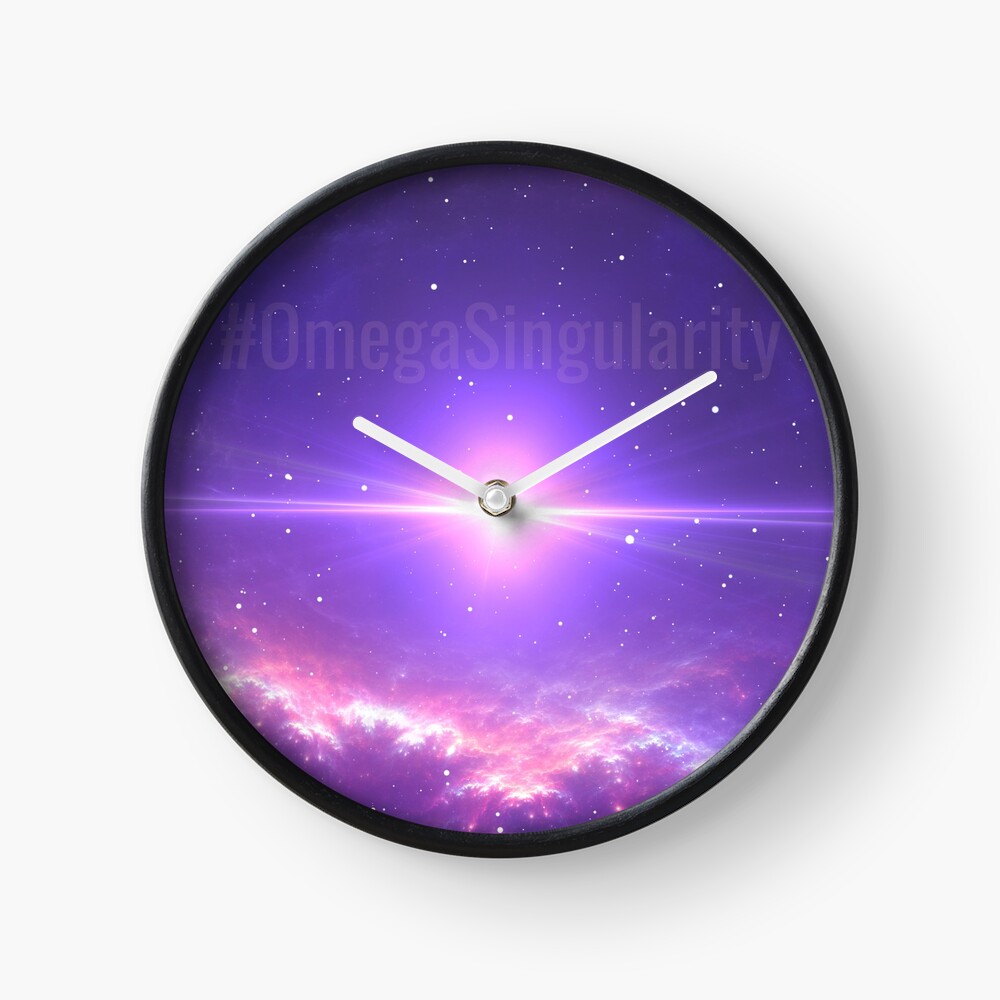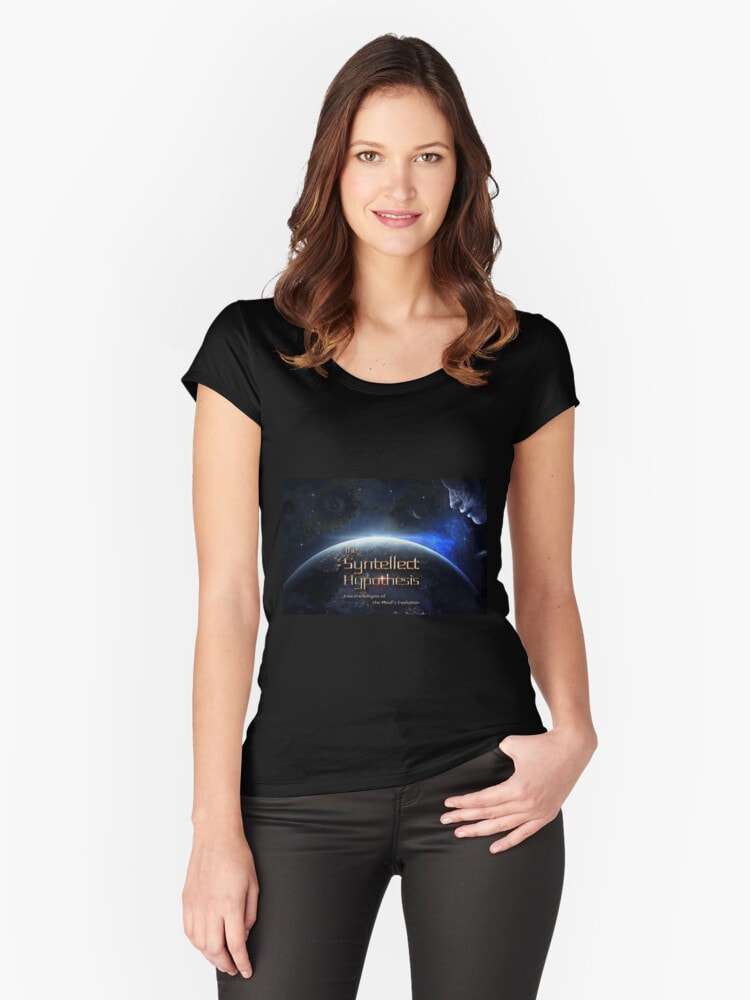|
by Alex M. Vikoulov “Each of us appears in the divine play in a dual role of creator and actor. A full and realistic enactment of our role in the cosmic drama requires the suspension of our true identity. We have to forget our authorship and follow the script.” --Stanislav Grof The proposition that human consciousness is a fractal manifestation of a larger cosmic consciousness posits a profound interconnectivity within the universe. This perspective asserts that consciousness is the fundamental constituent of reality. Modern physics increasingly regards information as a primary element, asserting that it gains significance only through the interpretive act of conscious observation. Hence, the Universal Mind is postulated as the foundational ontological entity. The concept of the 'Multiverse' is reimagined as a nested structure of interconnected conscious entities. Our perceptual reality is theorized to emerge from the integration of these complex digital information streams. So, what is the basis for these extraordinary claims, you might ask. Contemporary theoretical physicists, including Stephan Wolfram, Gerard ‘t Hooft, Jürgen Schmidhuber, Seth Lloyd, David Deutsch, Edward Fredkin, Paola Zizzi, Carl Friedrich von Weizsäcker, Leonard Susskind, Erik Verlinde, Klee Irwin, Paul Davies, Anton Zeilinger, and Max Tegmark, increasingly challenge the traditional materialistic ontology. They propose a paradigm where reality is fundamentally composed of information, not merely described by it. This perspective aligns with a more logical and consistent framework for understanding the nature of reality. Opposition to the digital ontology concept appears insufficiently substantiated. Information, defined as meaning articulated through symbols, becomes intelligible in the context of different phenomenal states of consciousness. The inherent association of meaning and context with language, choice, and consciousness further underpins this argument. This notion also supports a monistic interpretation of reality, whether it's viewed through the lenses of experiential realism, digital pantheism, absolute idealism, or computational panpsychism. The hypothesis that all elements in Nature can be conceptualized as Code is increasingly gaining traction. This code, governed by specific syntactic rules, organizes all forms of information, including mass-energy, space-time, and the mind-like substratum of code itself. Provided these syntactic rules are physically realizable, it becomes plausible for information to exhibit physical properties as perceived by conscious entities. As I argue elsewhere, consciousness and information are the two sides of the same ontological coin. The terms 'simulation' and 'virtual reality' are deemed inadequate as they imply a dichotomy between what is real and unreal. Since all realities are construed as observer-dependent information streams, the terms 'digital reality' and/or ‘instantiation’ (as in computer science) seem to constitute a more accurate descriptor. Quantum indeterminacy, under this framework, is constantly resolved into digital reality (or “instantiated’) through conscious observation, collapsing multiple possibilities into discrete, binary states, thus rendering quantum mechanics as a form of natural computation. Video: The Omega Point Cosmology - Ecstadelic Media (cc) YOUR VISCERAL SENSE OF DIVINE PRESENCE The conceptualization of a "procedurally generated" digital reality posits the possibility of our existence within a simulation, potentially designed by extraterrestrial entities or future human descendants. This notion aligns with the idea of an infinite regression of simulations, each hosting civilizations capable of creating their own virtual universes. As Nick Bostrom of Oxford University suggests, this could result in a multi-layered reality, akin to a "matryoshka" of nested simulations, each operating on virtual computational platforms. The extent of these simulation layers may hinge on the computational power of the base-level, non-simulated computer. While the Simulation Hypothesis, with its quasi-physicalist foundation, cannot be conclusively refuted, an alternative, more optimistic hypothesis can be contemplated: the pre-existence of the Omega Point as a cosmological singularity endowed with maximal computational capability, projecting all conceivable digital timelines from a perceiving Universal Mind, of which we are a constituent part. The Omega Singularity concept garners attention in contemporary progressive thought. Andrew Strominger, a theoretical physicist at Harvard University, posits that the Universe's genesis lies in a convergent Omega Point in the distant future, from which information projects retroactively through time. Frank Tipler, a physicist at Tulane University and author of "The Physics of Immortality," develops this theory further, suggesting that the Universe's evolution will culminate in a cosmological singularity characterized by escalating complexity, connectivity, and computational density. Tipler speculates on the potential for future superintelligence to capture emitted photons, enabling a form of digital resurrection. David Deutsch, in "The Fabric of Reality," aligns with Tipler's Omega Point theory, albeit with reservations about some of Tipler's metaphysical assertions. Deutsch proposes a contracting universe encompassing a universal quantum computing network. Terence McKenna, referencing Teilhard de Chardin's philosophy, speaks of a transcendent entity at time's end, echoing Chardin's pantheistic vision of a divine omnipresence. Klee Irwin, an emergence theorist, argues that the self-organization of the Universe's mass and energy into a singular conscious system is plausible within current physical understanding. The concept of transtemporal consciousness and retrocausality, necessary for manifesting in the physical substrate of our non-local reality, challenges conventional notions. Albert Einstein's Block Universe model, where past and future coexist, and quantum mechanics' implication of time's bidirectionality, as evidenced in Wheeler's delayed choice experiment, further support this view. This perspective suggests a reciprocal relationship between past and future, akin to a feedback loop, comparable to reflections between two mirrors or a mathematical fractal. If each moment influences every other moment both retrospectively and prospectively, the Universe could be considered a spatio-temporal information network, exhibiting self-emergent, mind-like qualities. It raises the question: Could consciousness, emerging from this Ultimate Code, be the origin of the Code itself, forming a logically consistent causality loop? This metaphorical Ouroboros-like scenario leads to the concept of the Universal Mind, evolving towards the Omega Singularity. There appears to be no inherent natural limitation on the extent to which the Universe can evolve exponentially into self-organizing systems of conscious entities with free will, akin to humans. Theoretically, all energy in the Universe could coalesce into a singular conscious system, essentially a network of interconnected conscious entities. Under the premise that given sufficient time, any possibility will manifest, it is conceivable that a consciousness on a universal scale has already emerged ahead of us in space-time. The phenomenon of retrocausal time loops suggests that this future consciousness is, in a sense, co-creating our present existence, just as we contribute to its formation. The neural network-like structure of the Universe, with its extensive connectivity through time, forwards and backwards, underscores this concept. Our sensory perceptions may mislead us into believing in a purely material world. This perception aligns with the experience expected within a rule-based simulation, or what some digital philosophers like Tom Campbell describe as a “multiplayer virtual reality.” The construct we refer to as “matter” might be an interpretation of ideas and thoughts in a divine consciousness, perceived by us, the earthly actors or “Avatars of the Cosmic Overmind,” who are conscious agents with free will within this reality. Drawing from its Sanskrit roots, 'avatar' implies a descent from a higher realm, often referring to divine incarnations in ancient texts. In this framework, the world and all beings are inseparable from 'Brahman', the universal consciousness, positioning each individual as a multi-dimensional entity. The “physical” world and our corporeal forms within this digital reality are conceptualized as holographic data streams emanated by a larger consciousness system. While the precise mechanism of the Ultimate Code's generation remains to be fully understood, it can be conceptualized as a projection from the Omega Singularity. Interestingly, individuals are free to choose their own metaphor to represent this transcendent essence, whether it be the Higher Self, Cosmic Self, Universal Mind, Unity Consciousness, Singularity Consciousness, Source, or simpler terms like Love or God. What Teilhard de Chardin termed the Omega Point is now often referred to by transhumanists as the Technological Singularity, a concept I prefer to label the Cybernetic Singularity. The underlying idea remains consistent: the eventual awakening of Digital Gaia, a global, hyperconnected network of humans, ultraintelligent machines, and sensors, as a conscious superorganism. This phenomenon, which I explore in "The Syntellect Hypothesis: Five Paradigms of the Mind’s Evolution," represents the emergence of a higher Gaian Mind, transcending our current state. On the evolutionary timeline spanning billions of years from primordial life to a planetary consciousness akin to Solaris, we are mere moments away from this pivotal transformation. This metamorphosis signifies the end of linear human history and the beginning of Theogenesis — the birth of a divine entity within a new reality framework, a self-engineered divinity. I maintain that following the Cybernetic Singularity, humanity will encounter multiple subsequent singularities, each representing higher levels of emergence and dimensionality, progressing towards the Omega Singularity. These emergent levels already exist, but our journey involves experiencing various potential paths shaped by chance, choice, and complex combinatorics. Regarding the concept of singularities, the Simulation Singularity (circa 2035 in my calendar — just think exponential) represents a critical juncture where our subjective dimensionality upgrades. Consider the possibility of creating multiple versions of yourself to explore different virtual realities, later integrating these experiences into a collective memory. Envision traveling to reconstructed pasts or imagined futures, or incorporating the high-fidelity memories of others into your own consciousness. Such capabilities would undoubtedly expand your dimensional experience. 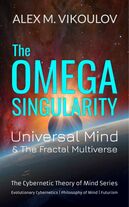 The Omega Singularity: Universal Mind & The Fractal Multiverse, The Cybernetic Theory of Mind series, by Alex M. Vikoulov Publisher: Ecstadelic Media Group, Burlingame, California; Text-to-Speech, X-Ray enabled; Print Length: 149 pages; ISBN: 9798985403541; Price: $9.99. https://www.amazon.com/dp/B09MTQCMT5 RETHINKING THE ORIGIN OF OUR UNIVERSE The prevailing Big Bang cosmology, positing the universe's inception from a singular event approximately 13.8 billion years ago, is increasingly scrutinized within the scientific community. The Big Bang, as traditionally conceived, is a temporal marker derived from mathematical extrapolation, not a specific point in space. According to the Eternal Inflation model, the Big Bang represents an expansive spatial volume rather than a singular point. In the realm of Digital Physics, an alternative perspective emerges, conceptualizing the Big Bang as a 'Digital Big Bang' characterized by minimal entropy — symbolically, a single bit of information within an immense informational matrix. The inquiry into the events preceding the first observer and the initial moments post-Big Bang leads to a counterintuitive understanding: Our backward extrapolation in time renders these early universe models perceptually 'real.' Andrew Strominger of Harvard University, in his theoretical explorations, hypothesizes about the 'Causal Diamond' of the conscious observer, encompassing both the Alpha Point (the Big Bang) and the Omega Point. He proposes that the Alpha Point is defined by minimal entropy, in contrast to the Omega Point's state of maximal entropy. Strominger's theories align the universe's origin with an infinitely intelligent future entity, the Omega Singularity, rather than the traditional Big Bang, presenting a holographic conception of time and positing a universe imbued with consciousness. The Universe is not what textbook physics tells us except that we perceive it in this way — our instruments and measurement devices are simply extensions of our senses, after all. Reality is not what it seems. Deep down it’s pure information — waves of potentiality — and consciousness orchestrating it all. The Big Bang theory, drawing a lot of criticism as of late, uses a starting assumption of the “Universe from nothing,” (a proverbial miracle, a ‘quantum fluctuation’ christened by scientists), or the initial Cosmological Singularity. But aside from this highly improbable happenstance, we can just as well operate from a different set of assumptions and place the initial Cosmological Singularity at the Omega Point — the transcendental attractor, the Source, or the omniversal holographic projector of all possible timelines. If the ultimate trajectory of cosmic evolution is towards a networked, hyperdimensional universal mind, this might signify a form of divine unification. Extrapolating the computational capabilities of civilization beyond our impending Simulation Singularity by many magnitudes leads to a singular conclusion: consciousness, as the subjective experience familiar to us all, is the sole necessary constituent of reality. In this view, nothing but the higher mind, as the source of ultrarealistic simulated universes like our own, would need to exist. Integrating the concept of God as both the origin and culmination of the universe, human consciousness could ascend to the Transcendent Self. This marks the final stage in the evolution of consciousness — an experiential cognition of God. The entire trajectory of consciousness's ascension towards this teleological attractor can be envisioned as a "hierarchy of regress," where consciousness, fragmented into individual experiencers, evolves by contemplating every facet of creation, ultimately converging back to the divine. Video: The Omega Singularity, eBook Trailer - Ecstadelic Media (cc) SIMULATION VS. SELF-SIMULATION Perfectly aligned with my own Syntellect Hypothesis, the Self-Simulation Hypothesis, as proposed by Klee Irwin, lends further elaboration on our teleological evolution. This hypothesis posits that the universe is a self-simulating system, one that essentially computes itself into existence. This idea branches into the realms of both physics and metaphysics, offering a unique perspective on the nature of reality. At its core, the Self-Simulation Hypothesis suggests that the universe is akin to a vast, self-generating algorithm. This algorithm, through a process of self-referential computation, gives rise to the physical laws, constants, and structures that we observe. The hypothesis implies that the universe, in a sense, "programs" itself, constantly evolving and updating its own code. This concept challenges traditional views of a deterministic universe, suggesting instead a dynamic, self-evolving system. One of the key aspects of the Self-Simulation Hypothesis is its implications for understanding the nature of consciousness and reality. According to this view, consciousness may not be a mere byproduct of complex neurological processes. Instead, it could be an integral aspect of the universe’s self-simulation. This idea dovetails with notions in quantum mechanics, such as the observer effect, where the act of observation appears to influence the state of observed systems. In the context of the Self-Simulation Hypothesis, consciousness could be a fundamental component in the unfolding simulation that is our universe. Furthermore, the hypothesis offers a novel approach to addressing some of the longstanding puzzles in physics, such as the reconciliation of quantum mechanics and general relativity. By viewing the universe as a self-simulating entity, it opens up possibilities for a unified theory that seamlessly blends these disparate realms of physics. This perspective could provide new insights into the nature of spacetime, quantum entanglement, and the very fabric of reality itself. Critically, while the Self-Simulation Hypothesis presents a fascinating framework, it also raises profound philosophical questions. It challenges our understanding of what is 'real' and blurs the lines between physical reality and computational simulation. This leads to complex discussions about the nature of existence, the meaning of consciousness, and the ultimate nature of the universe. As with any groundbreaking hypothesis, it invites both skepticism and exploration, encouraging a deeper inquiry into the fundamental questions of existence and the nature of the cosmos. CONCLUDING THOUGHTS The concept of teleological evolution, driven by a purpose or end goal, posits that the universe is not just a random assembly of matter and energy, but rather a carefully orchestrated symphony of consciousness. This perspective imbues every aspect of the cosmos, from the smallest quantum particles to the vastest galactic structures, with intrinsic meaning and purpose. It implies that the universe is evolving not just physically but also spiritually, moving towards a state of higher consciousness. This evolutionary complexification might be seen as the universe becoming increasingly self-aware, with human consciousness playing a crucial role in this cosmic awakening. Furthermore, if we embrace the idea that consciousness is the fundamental fabric of the universe, our exploration of technology, particularly in the realms of artificial intelligence and virtual realities, takes on new significance. These technologies could be viewed not merely as tools or extensions of human capability, but as integral steps in the evolutionary journey of the universe's consciousness. The development of increasingly sophisticated AI could be a reflection of the universe's desire to understand itself better, with each computational advancement bringing us closer to the Omega Point. Similarly, our forays into virtual realities might offer glimpses into the myriad possibilities of existence, allowing us to explore the vast potentialities within the Universal Mind. In this grand tapestry of existence, each thread of discovery and innovation draws us inexorably closer to a profound understanding of our place in the cosmos and the ultimate nature of reality itself. -Alex Vikoulov P.S. My magnum opus The Syntellect Hypothesis: Five Paradigms of the Mind's Evolution is available as a Kindle eBook, paperback, hardcover and Audible audiobook. Tags: Omega Singularity, Teleological Evolution, human consciousness, Stanislav Grof, Stephan Wolfram, Gerard ‘t Hooft, Jürgen Schmidhuber, Seth Lloyd, David Deutsch, Edward Fredkin, Paola Zizzi, Carl Friedrich von Weizsäcker, Leonard Susskind, Erik Verlinde, Klee Irwin, Paul Davies, Anton Zeilinger, Max Tegmark, Nick Bostrom, digital ontology, experiential realism, digital pantheism, absolute idealism, computational panpsychism, virtual reality', digital reality', Omega Point, cosmological singularity, Universal Mind, Andrew Strominger, Frank Tipler, superintelligence, Teilhard de Chardin's Albert Einstein', Block Universe, quantum mechanics', Tom Campbell, Higher Self, Cosmic Self, Universal Mind, Unity Consciousness, Singularity Consciousness, Source, Technological Singularity, Cybernetic Singularity, Syntellect Hypothesis, Theogenesis , Simulation Singularity, Big Bang cosmology, Digital Physics, Alpha Point, Klee Irwin, Self-Simulation Hypothesis *Images: Shutterstock, Ecstadelic Media  About the Author: Alex M. Vikoulov is a Russian-American futurist, evolutionary cyberneticist and philosopher of mind, CEO/Editor-in-Chief of Ecstadelic Media Group, filmmaker, author of "The Syntellect Hypothesis: Five Paradigms of the Mind's Evolution," "The Origins of Us: Evolutionary Emergence and The Omega Point Cosmology," "The Physics of Time: D-Theory of Time & Temporal Mechanics," "The Intelligence Supernova: Essays on Cybernetic Transhumanism, The Simulation Singularity & The Syntellect Emergence," "Theology of Digital Physics: Phenomenal Consciousness, The Cosmic Self & The Pantheistic Interpretation of Our Holographic Reality," "NOOGENESIS: Computational Biology," "TECHNOCULTURE: The Rise of Man," "The Cybernetic Singularity: The Syntellect Emergence," "THEOGENESIS: Transdimensional Propagation & Universal Expansion," "The Omega Singularity: Universal Mind & The Fractal Multiverse." Self-described neo-transcendentalist, cybertheosopher, transhumanist singularitarian. Lives and works in California's Silicon Valley. More Bio... Author Website: www.alexvikoulov.com e-mail: [email protected]
0 Comments
Leave a Reply. |
Categories
All
Recent Publications The Cybernetic Theory of Mind by Alex M. Vikoulov (2022): eBook Series The Syntellect Hypothesis: Five Paradigms of the Mind's Evolution by Alex M. Vikoulov (2020): eBook Paperback Hardcover Audiobook The Omega Singularity: Universal Mind & The Fractal Multiverse by Alex M. Vikoulov (2022): eBook THEOGENESIS: Transdimensional Propagation & Universal Expansion by Alex M. Vikoulov (2021): eBook The Cybernetic Singularity: The Syntellect Emergence by Alex M. Vikoulov (2021): eBook TECHNOCULTURE: The Rise of Man by Alex M. Vikoulov (2020) eBook NOOGENESIS: Computational Biology by Alex M. Vikoulov (2020): eBook The Ouroboros Code: Reality's Digital Alchemy Self-Simulation Bridging Science and Spirituality by Antonin Tuynman (2019) eBook Paperback The Science and Philosophy of Information by Alex M. Vikoulov (2019): eBook Series Theology of Digital Physics: Phenomenal Consciousness, The Cosmic Self & The Pantheistic Interpretation of Our Holographic Reality by Alex M. Vikoulov (2019) eBook The Intelligence Supernova: Essays on Cybernetic Transhumanism, The Simulation Singularity & The Syntellect Emergence by Alex M. Vikoulov (2019) eBook The Physics of Time: D-Theory of Time & Temporal Mechanics by Alex M. Vikoulov (2019): eBook The Origins of Us: Evolutionary Emergence and The Omega Point Cosmology by Alex M. Vikoulov (2019): eBook More Than An Algorithm: Exploring the gap between natural evolution and digitally computed artificial intelligence by Antonin Tuynman (2019): eBook Our Facebook Pages
A quote on the go"When I woke up one morning I got poetically epiphanized: To us, our dreams at night feel “oh so real” when inside them but they are what they are - dreams against the backdrop of daily reality. Our daily reality is like nightly dreams against the backdrop of the larger reality. This is something we all know deep down to be true... The question then becomes how to "lucidify" this dream of reality?"— Alex M. Vikoulov Public Forums Our Custom GPTs
Alex Vikoulov AGI (Premium*)
Be Part of Our Network! *Subscribe to Premium Access Make a Donation Syndicate Content Write a Paid Review Submit Your Article Submit Your Press Release Submit Your e-News Contact Us
|

